- Home
- Bobby Akart
Doomsday Apocalypse
Doomsday Apocalypse Read online
Thank you for downloading DOOMSDAY: APOCALYPSE, book one of the Doomsday series, by author Bobby Akart.
For free books, updates on new releases, special offers, and bonus content
Click Here to Sign Up
or visit Bobby Akart’s Amazon feature page at
Amazon.com/BobbyAkart
or visit his website at
BobbyAkart.com
Other Works by Amazon Top 100 Author Bobby Akart
The Doomsday Series
Apocalypse
Haven
Anarchy
Minutemen
The Yellowstone Series
Hellfire
Inferno
Fallout
Survival
The Lone Star Series
Axis of Evil
Beyond Borders
Lines in the Sand
Texas Strong
Fifth Column
Suicide Six
The Pandemic Series
Beginnings
The Innocents
Level 6
Quietus
The Blackout Series
36 Hours
Zero Hour
Turning Point
Shiloh Ranch
Hornet’s Nest
Devil’s Homecoming
The Boston Brahmin Series
The Loyal Nine
Cyber Attack
Martial Law
False Flag
The Mechanics
Choose Freedom
Patriot’s Farewell
Seeds of Liberty (Companion Guide)
The Prepping for Tomorrow Series
Cyber Warfare
EMP: Electromagnetic Pulse
Economic Collapse
DOOMSDAY: Apocalypse
The Doomsday Series, Book One
by
Bobby Akart
Contents
Dedications
Acknowledgements
About the Author, Bobby Akart
Author’s Introduction to the Doomsday Series
Epigraph
Prologue
New Year’s Eve
Chapter 1
Chapter 2
Chapter 3
Chapter 4
Chapter 5
Chapter 6
Chapter 7
Chapter 8
Chapter 9
Chapter 10
Chapter 11
Chapter 12
Chapter 13
Chapter 14
Chapter 15
Chapter 16
Chapter 17
Chapter 18
Chapter 19
Chapter 20
Chapter 21
Chapter 22
Chapter 23
Chapter 24
Chapter 25
Chapter 26
Chapter 27
Chapter 28
Chapter 29
Chapter 30
Chapter 31
Chapter 32
Chapter 33
Chapter 34
Chapter 35
Chapter 36
Chapter 37
Chapter 38
Chapter 39
Chapter 40
Chapter 41
Chapter 42
Chapter 43
Chapter 44
Chapter 45
Chapter 46
Chapter 47
Chapter 48
Chapter 49
Chapter 50
Chapter 51
Chapter 52
Chapter 53
Chapter 54
Chapter 55
Chapter 56
Chapter 57
Chapter 58
Excerpt from DOOMSDAY: HAVEN
Copyright Information
Dedications
For many years, I have lived by the following premise:
Because you never know when the day before is the day before, prepare for tomorrow.
My friends, I study and write about the threats we face, not only to both entertain and inform you, but because I am constantly learning how to prepare for the benefit of my family as well. There is nothing more important on this planet than my darling wife, Dani, and our two girls, Bullie and Boom. One day, Doomsday will come, and I’ll be damned if I’m gonna let it stand in the way of our life together.
The Doomsday series is dedicated to the love and support of my family. I will always protect you from anything that threatens us.
Acknowledgements
Writing a book that is both informative and entertaining requires a tremendous team effort. Writing is the easy part. For their efforts in making the Doomsday series a reality, I would like to thank Hristo Argirov Kovatliev for his incredible cover art, Pauline Nolet for her editorial prowess, Stef Mcdaid for making this manuscript decipherable in so many formats, Chris Abernathy for his memorable performance in narrating this novel, and the Team—Denise, Joe, Jim, and Shirley—whose advice, friendship and attention to detail is priceless.
A thank you and a shout-out to Michael and Ruth Wright, fellow East Tennesseans, who provided me the name of an important character in the Doomsday series—Prowler. You’ll see why the name is apropos.
In addition, my loyal readers who interact with me on social media know that Dani and I have been fans of the television reality show, Big Brother, since it began broadcasting on CBS in the summer of 2000. The program was one of the greatest social experiments ever imagined. Each season, more than a dozen contestants compete for a half-million-dollar cash prize.
During the months-long airing of the program, the houseguests are isolated from the outside world, but we, the viewers, get to watch their every move via more than a hundred cameras and microphones. The opportunity to study how people interact under these unusual stressful circumstances has allowed me to create diverse and interesting characters for you, dear readers.
Over the years, we’ve been fortunate to meet several of the past Big Brother contestants and this year, for the second time (the first being our friend, Judd Daugherty, who was a doctor in The Boston Brahmin series), I’ve actually written four of them into the characters through the use of their first name and unique character attributes.
During the airing of season twenty during the summer of 2018, early on in the show, an alliance formed between a group of six who controlled the game from start-to-finish. You can imagine the high-fives Dani and I exchanged when they named their alliance—Level 6, the same name as the title of book three in my Pandemic Series released in the summer of 2017.
To season twenty winner, Kaycee Clark; our favorite showmance of all time, Angela Rummans and Tyler Crispen; and to one of the funniest, most real people I’ve ever seen on television, “JC” Mounduix—thank you for inspiring the Rankin family in the Doomsday series!
Thank you all!
Choose Freedom and Godspeed, Patriots!
About the Author, Bobby Akart
Author Bobby Akart has been ranked by Amazon as #55 in its Top 100 list of most popular, bestselling authors. He achieved #2 bestselling Horror Author, #2 bestselling Science Fiction Author, #3 bestselling Religion & Spirituality Author, #7 bestselling Historical Author and #8 bestselling Action & Adventure Author.
He has written over twenty international bestsellers, in nearly fifty fiction and nonfiction genres, including the chart-busting Yellowstone series, the reader-favorite Lone Star series, the critically acclaimed Boston Brahmin series, the bestselling Blackout series, the frighteningly realistic Pandemic series, his highly cited nonfiction Prepping for Tomorrow series, and his latest project—the Doomsday series, seen by many as the horrifying future of our nation if we can’t find a way to come together.
His novel Yellowstone: Fallout reached #50 on the Amazon bestsell
ers list and earned him two Kindle All-Star awards for most pages read in a month and most pages read as an author.
Bobby has provided his readers a diverse range of topics that are both informative and entertaining. His attention to detail and impeccable research has allowed him to capture the imaginations of his readers through his fictional works and bring them valuable knowledge through his nonfiction books.
SIGN UP for Bobby Akart’s mailing list to receive special offers, bonus content, and you’ll be the first to receive news about new releases in the Doomsday series.
VISIT Amazon.com/BobbyAkart, a dedicated feature page created by Amazon for his work, to view more information on his thriller fiction novels and post-apocalyptic book series, as well as his nonfiction Prepping for Tomorrow series. Visit Bobby Akart’s website for informative blog entries on preparedness, writing, and a behind-the-scenes look into his novels.
www.BobbyAkart.com
Author’s Introduction to the Doomsday Series
November 8, 2018
Are we on the brink of destroying ourselves?
Some argue that our nation is deeply divided, with each side condemning the other as the enemy of America. By way of example, one can point to the events leading up to the Civil War in the latter part of the 1850s, right up until the first cannon fire rained upon Fort Sumter in Charleston, South Carolina. It’s happened before, and it could happen again.
The war of words has intensified over the last several decades, and now deranged people on the fringe of society have taken matters into their own hands. Ranging from pipe bomb packages mailed to political leaders and supporters, to a gunman shooting congressmen at a softball practice, words are being replaced with deadly, violent acts.
To be sure, we’ve experienced violence and intense social strife in this country as a result of political differences. The Civil War was one example. The assassination of Martin Luther King, Jr., followed by the raging street battles over civil rights and the Vietnam War, is another.
This moment in America’s history feels worse because we are growing much more divisive. Our shared values are being forgotten and a breakdown is occurring between us and our government, and between us and the office of the presidency.
Our ability to find common ground is gradually disappearing. We shout at the television or quit watching altogether. Social media has become anything but social. We unfollow friends or write things in a post that we’d never dream of saying to someone’s face.
Friends and family avoid one another at gatherings because they fear political discussions will result in an uncomfortable, even hostile, exchange. Many in our nation no longer look at their fellow Americans as being from a different race or religion, but rather, as supporting one political party or another.
This is where America is today, and it is far different from the months leading up to the Civil War. Liberal historians label the conflict as a battle over slavery, while conservative historians tend to argue the issue was over state’s rights. At the time, the only thing agreed upon was the field of battle—farms and open country from Pennsylvania to Georgia.
Today, there are many battle fronts. Media—news, entertainment, and social, is a major battlefield. The halls of Congress and within the inner workings of governments at all levels, is another. Between Americans based upon class warfare, cultural differences, and race-religion-gender, pervades every aspect of our lives.
Make no mistake, on both sides of the political spectrum, a new generation of leaders has emerged who’ve made fueling our divisions their political modus operandi. I remember the bipartisan efforts of Ronald Reagan and Tip O’Neill in the eighties. Also, Bill Clinton and Newt Gingrich in the mid-nineties. The turn of the century hasn’t provided us the types of bipartisan working relationships that those leaders of the recent past have generated.
So, here we are at each other’s throats. What stops the political rancor and division? The answer to this question results in even more partisan arguments and finger-pointing.
Which leads me to the purpose of the Doomsday series. The term doomsday evokes images of the end of times, the day the world ends, or a time when something terrible or dangerous will happen. Sounds dramatic, but everything is relative.
I’ve repeated this often, and I will again for those who haven’t heard it.
All empires collapse eventually. Their reign ends when they are either defeated by a larger and more powerful enemy, or when their financing runs out. America will be no exception.
Now, couple this theory with the words often attributed to President Abraham Lincoln in an 1838 speech interpreted as follows:
America will never be destroyed from the outside. If we falter and lose our freedoms, it will be because we destroyed ourselves.
The Doomsday series depicts an America hell-bent upon destroying itself. It is a dystopian look at what will happen if we don’t find a way to deescalate the attacks upon one another. Both sides will shoulder the blame for what will happen when the war of words becomes increasingly more violent to the point where one side brings out the big guns.
That’s when an ideological battle will result in bloodshed of innocent Americans caught in the crossfire. Truly, for the future of our nation, doomsday would be upon us.
Thank you for reading with an open mind and not through the lens of political glasses. I hope we can come together for the sake of our families and our nation. God bless America.
Epigraph
To argue with a person who renounced the use of reason is like administering medicine to the dead.
~ Thomas Paine
*****
I never considered a difference in opinion in politics, religion, or philosophy as cause for withdrawing from a friend.
~ Thomas Jefferson
*****
“I’m right!” “No, you’re not, I am right!” “Yes, I am!” “You’re stupid.” “No, I’m not, take it back!” “I won’t, you stupid idiot!” “Shut up!” “No, you shut up!”
~ Two seven-year-old friends on a school playground
*****
America will never be destroyed from the outside. If we falter and lose our freedoms, it will be because we destroyed ourselves.
~ paraphrased from a speech by Abraham Lincoln, 1838
*****
All empires collapse eventually. Their reign ends when they are either defeated by a larger and more powerful enemy, or when their financing runs out. America will be no exception.
~ Author Bobby Akart, 2015
Prologue
Monocacy Farm
South of Frederick, Maryland
October 31
Any two of them rarely met in person, and only on one other occasion had they congregated as a group. Their backgrounds and ideologies were as diverse as the country in which they lived. Matters of race, gender, religion, and culture were irrelevant. Commonality of purpose was tantamount in their minds.
If the meeting were known to the public, one day it would be deemed historic. The gathering, located at a hundred-acre farm twenty miles south of Frederick, Maryland, was not called hastily. Hushed conversations and encrypted messages, starting several months earlier, preceded the clandestine meeting.
As fall set upon the Northeastern United States and the first Tuesday in November rapidly approached, the men and women began to feel a sense of urgency. The whispers grew louder—a meeting must be convened posthaste. October 31 was agreed upon.
The location sitting on the banks of the Monocacy River was a given, especially in light of its historic significance. One by one, they arrived at the mansion, a beautiful antebellum structure that had been in their host’s family for generations dating back to its construction in the early nineteenth century. Sitting nearly a mile off the road, the stately home and adjacent barns were enveloped with sugar maple trees, whose leaves had mostly changed to golden yellow and brown. Interspersed around the property to maintain its privacy were enormous eastern hemlocks that managed to avoid a
plague caused by the infestation of the hemlock woolly aphid, a blight upon the beautiful tree, which resulted in its slow deterioration and death.
The heir to the farm, who concealed his ownership through a blind trust, stood on the front porch despite the cool autumn air, and greeted his guests one by one. Although it was not intended to be a festive occasion, the attendees took the rare opportunity to socialize with their comrades by enjoying hors d’oeuvres and cocktails.
The staff who waited upon them were well trained and sworn to secrecy by more than a nondisclosure agreement that had become a worthless legal document in this day and age. No, they feared for their lives, for they presumed the tentacles of their powerful employer reached far and wide.
For the next several hours until midnight approached, they commiserated and debated. A consensus was reached, and then arguments began about things like moral high ground and sacrifice.
A plan was set forth to advance their goals, and countermeasures were adopted in anticipation of their enemies’ reaction. All of them envisioned a high-stakes game of chess that history would prove to be unparalleled in the modern age of geopolitical stratagems and tactics.
As the evening drew to a conclusion, their host proposed a toast.
“I was once confronted by a man of great political power who stood in my face and said, ‘You’re not strong enough to withstand the storm.’ Today, my friends, drawing from our collective strength and love of country, we have taken our stand. I would say to those who will condemn our actions—we are the storm!”
“Hear, hear!”
The group raised their glasses and drained them. Then their acknowledged leader stepped forward into the spacious living room that had hosted gala affairs and events over the centuries. He positioned himself in front of a massive stone fireplace containing a blaze that shot flames well up the chimney flue.

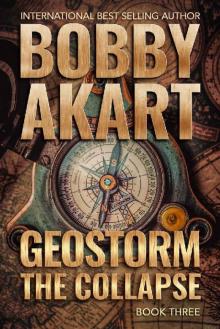 Geostorm The Collapse: A Post Apocalyptic EMP Survival Thriller (The Geostorm Series Book 3)
Geostorm The Collapse: A Post Apocalyptic EMP Survival Thriller (The Geostorm Series Book 3)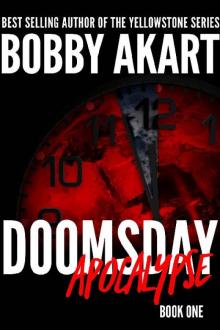 Doomsday Apocalypse
Doomsday Apocalypse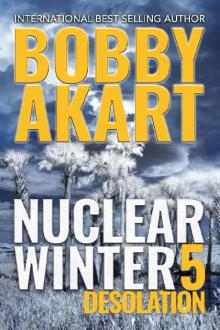 Nuclear Winter Desolation: Post Apocalyptic Survival Thriller (Nuclear Winter Series Book 5)
Nuclear Winter Desolation: Post Apocalyptic Survival Thriller (Nuclear Winter Series Book 5)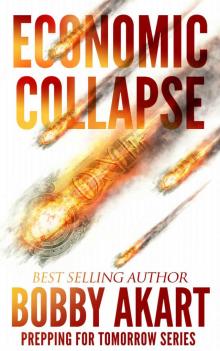 Economic Collapse (Prepping for Tomorrow Book 2)
Economic Collapse (Prepping for Tomorrow Book 2)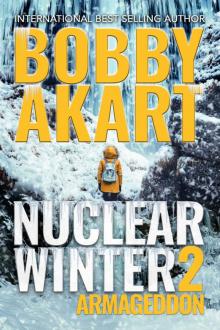 Nuclear Winter Armageddon
Nuclear Winter Armageddon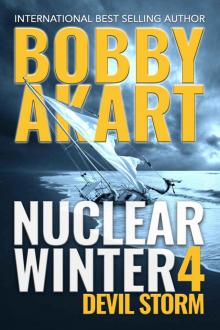 Nuclear Winter Devil Storm
Nuclear Winter Devil Storm Virus Hunters 3: A Medical Thriller
Virus Hunters 3: A Medical Thriller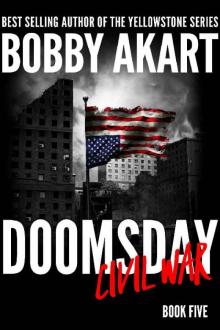 Doomsday Civil War: A Post-Apocalyptic Survival Thriller (The Doomsday Series Book 5)
Doomsday Civil War: A Post-Apocalyptic Survival Thriller (The Doomsday Series Book 5)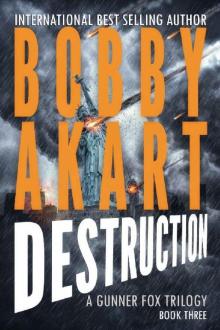 Asteroid Destruction
Asteroid Destruction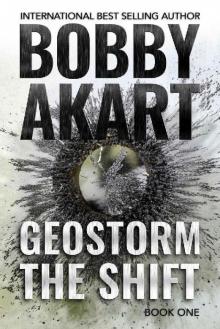 Geostorm the Shift
Geostorm the Shift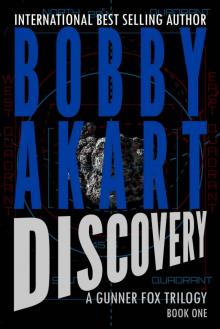 Asteroid Discovery
Asteroid Discovery Virus Hunters 2: A Medical Thriller
Virus Hunters 2: A Medical Thriller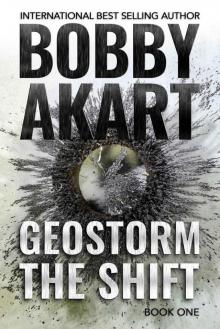 Geostorm The Shift: A Post-Apocalyptic EMP Survival Thriller (The Geostorm Series Book 1)
Geostorm The Shift: A Post-Apocalyptic EMP Survival Thriller (The Geostorm Series Book 1)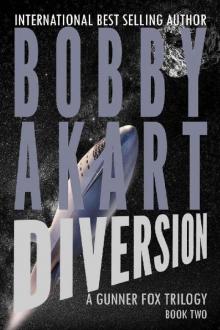 Asteroid Diversion
Asteroid Diversion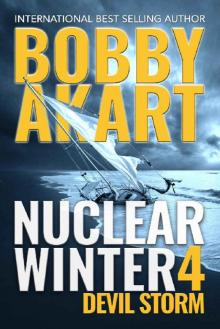 Nuclear Winter Devil Storm: Post Apocalyptic Survival Thriller (Nuclear Winter Series Book 4)
Nuclear Winter Devil Storm: Post Apocalyptic Survival Thriller (Nuclear Winter Series Book 4)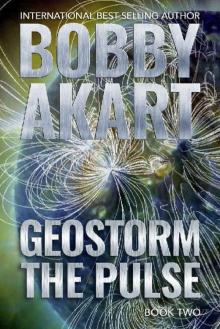 Geostorm The Pulse: A Post Apocalyptic EMP Survival Thriller (The Geostorm Series Book 2)
Geostorm The Pulse: A Post Apocalyptic EMP Survival Thriller (The Geostorm Series Book 2)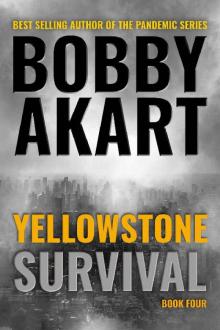 Yellowstone: Survival: A Post-Apocalyptic Survival Thriller (The Yellowstone Series Book 4)
Yellowstone: Survival: A Post-Apocalyptic Survival Thriller (The Yellowstone Series Book 4)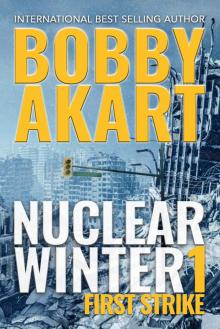 Nuclear Winter First Strike: Post-Apocalyptic Survival Thriller
Nuclear Winter First Strike: Post-Apocalyptic Survival Thriller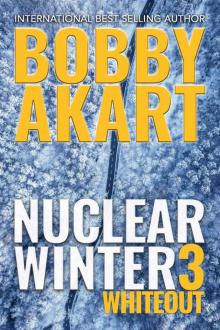 Nuclear Winter Whiteout
Nuclear Winter Whiteout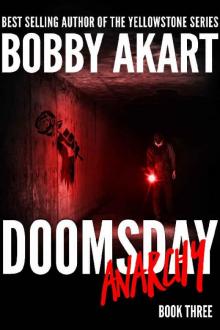 Doomsday Anarchy
Doomsday Anarchy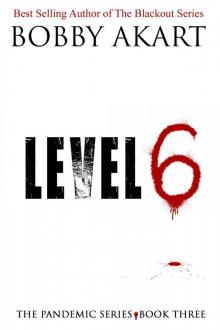 Pandemic: Level 6: A Post Apocalyptic Medical Thriller Fiction Series (The Pandemic Series Book 3)
Pandemic: Level 6: A Post Apocalyptic Medical Thriller Fiction Series (The Pandemic Series Book 3) Martial Law
Martial Law Odessa Reborn: A Terrorism Thriller (Gunner Fox Book 4)
Odessa Reborn: A Terrorism Thriller (Gunner Fox Book 4)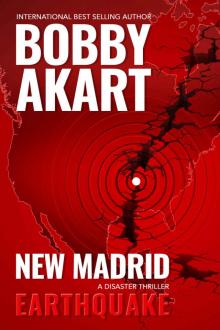 New Madrid Earthquake
New Madrid Earthquake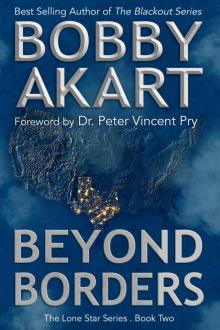 Beyond Borders: Post Apocalyptic EMP Survival Fiction (The Lone Star Series Book 2)
Beyond Borders: Post Apocalyptic EMP Survival Fiction (The Lone Star Series Book 2)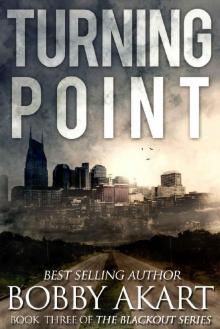 The Blackout Series (Book 3): Turning Point
The Blackout Series (Book 3): Turning Point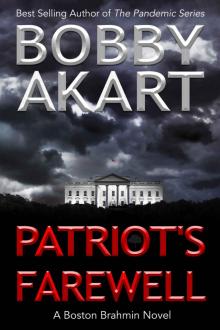 Patriot's Farewell: A Political Thriller Fiction Series (Boston Brahmin Political Thrillers Book 7)
Patriot's Farewell: A Political Thriller Fiction Series (Boston Brahmin Political Thrillers Book 7)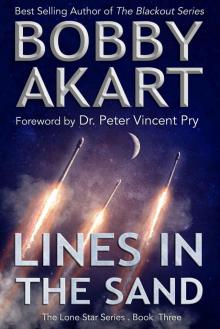 Lines in the Sand_Post Apocalyptic EMP Survival Fiction
Lines in the Sand_Post Apocalyptic EMP Survival Fiction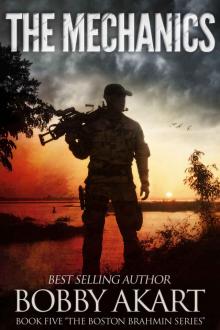 The Mechanics: A Post-Apocalyptic Fiction Series
The Mechanics: A Post-Apocalyptic Fiction Series The Loyal Nine
The Loyal Nine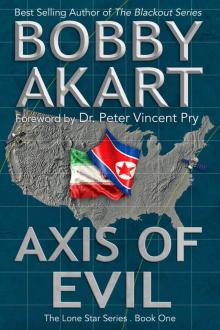 Axis of Evil
Axis of Evil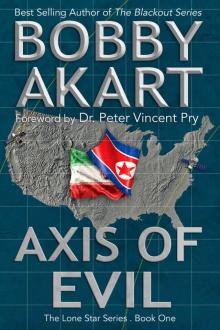 Axis of Evil: Post Apocalyptic EMP Survival Fiction (The Lone Star Series Book 1)
Axis of Evil: Post Apocalyptic EMP Survival Fiction (The Lone Star Series Book 1)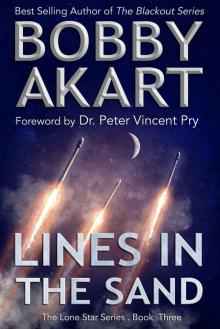 Lines in the Sand: Post Apocalyptic EMP Survival Fiction (The Lone Star Series Book 3)
Lines in the Sand: Post Apocalyptic EMP Survival Fiction (The Lone Star Series Book 3)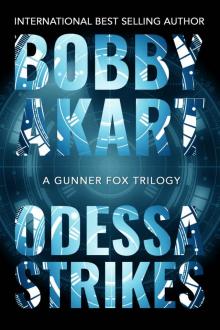 Odessa Strikes
Odessa Strikes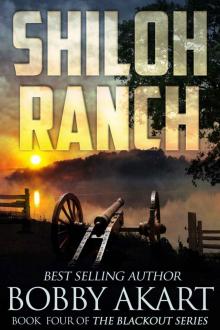 The Blackout Series (Book 4): Shiloh Ranch
The Blackout Series (Book 4): Shiloh Ranch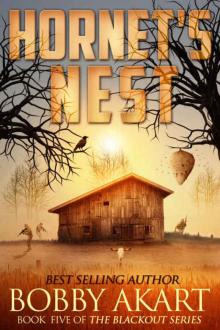 Hornet's Nest: A Post Apocalyptic EMP Survival Fiction Series (The Blackout Series Book 5)
Hornet's Nest: A Post Apocalyptic EMP Survival Fiction Series (The Blackout Series Book 5)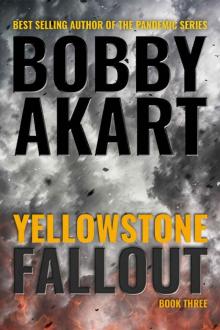 Yellowstone: Fallout: A Post-Apocalyptic Survival Thriller (The Yellowstone Series Book 3)
Yellowstone: Fallout: A Post-Apocalyptic Survival Thriller (The Yellowstone Series Book 3)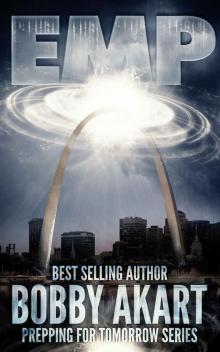 Electromagnetic Pulse
Electromagnetic Pulse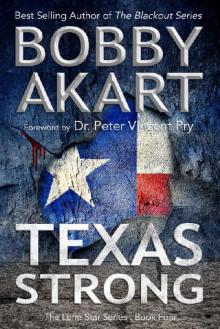 Texas Strong: Post Apocalyptic EMP Survival Fiction (The Lone Star Series Book 4)
Texas Strong: Post Apocalyptic EMP Survival Fiction (The Lone Star Series Book 4)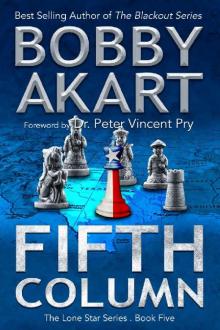 Fifth Column_Post Apocalyptic EMP Survival Fiction
Fifth Column_Post Apocalyptic EMP Survival Fiction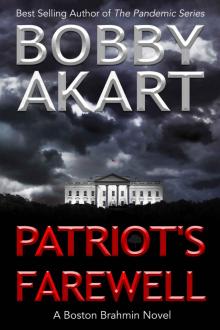 Patriot's Farewell
Patriot's Farewell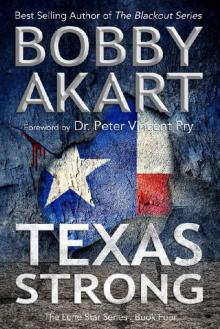 Texas Strong_Post Apocalyptic EMP Survival Fiction
Texas Strong_Post Apocalyptic EMP Survival Fiction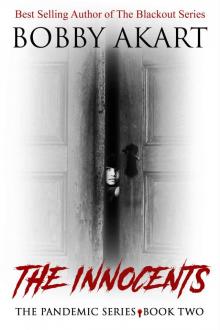 Pandemic: The Innocents: A Post-Apocalyptic Medical Thriller Fiction Series (The Pandemic Series Book 2)
Pandemic: The Innocents: A Post-Apocalyptic Medical Thriller Fiction Series (The Pandemic Series Book 2)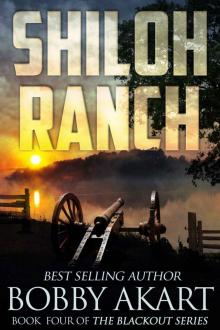 Shiloh Ranch: A Post Apocalyptic EMP Survival Fiction Series (The Blackout Series Book 4)
Shiloh Ranch: A Post Apocalyptic EMP Survival Fiction Series (The Blackout Series Book 4)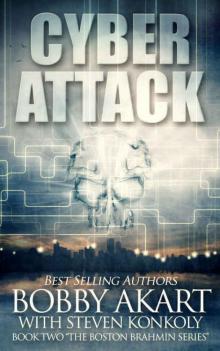 Cyber Attack
Cyber Attack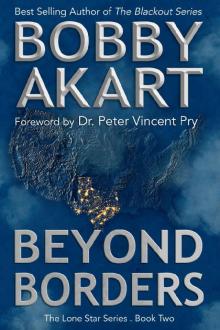 Beyond Borders
Beyond Borders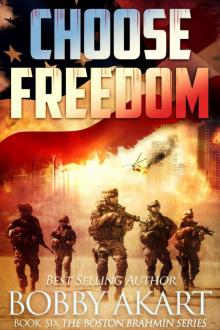 Choose Freedom: A Post-Apocalyptic Fiction Series (The Boston Brahmin Book 6)
Choose Freedom: A Post-Apocalyptic Fiction Series (The Boston Brahmin Book 6)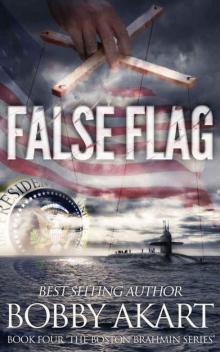 False Flag
False Flag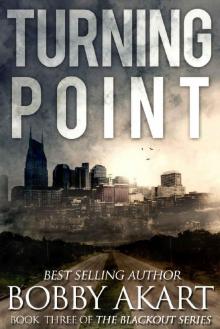 Turning Point: A Post Apocalyptic EMP Survival Fiction Series (The Blackout Series Book 3)
Turning Point: A Post Apocalyptic EMP Survival Fiction Series (The Blackout Series Book 3)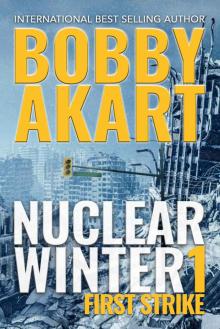 Nuclear Winter First Strike
Nuclear Winter First Strike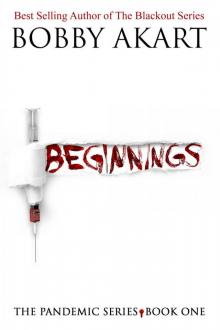 Pandemic: Beginnings: A Post-Apocalyptic Medical Thriller Fiction Series (The Pandemic Series Book 1)
Pandemic: Beginnings: A Post-Apocalyptic Medical Thriller Fiction Series (The Pandemic Series Book 1)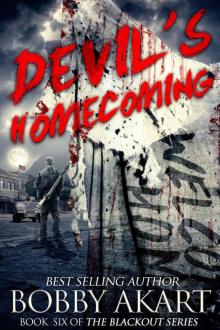 Devil's Homecoming: A Post Apocalyptic EMP Survival Fiction Series (The Blackout Series Book 6)
Devil's Homecoming: A Post Apocalyptic EMP Survival Fiction Series (The Blackout Series Book 6)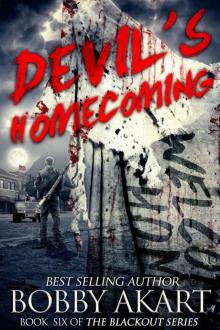 The Blackout Series (Book 6): Devil's Homecoming
The Blackout Series (Book 6): Devil's Homecoming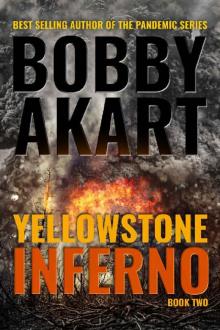 Yellowstone: Inferno: A Post-Apocalyptic Survival Thriller (The Yellowstone Series Book 2)
Yellowstone: Inferno: A Post-Apocalyptic Survival Thriller (The Yellowstone Series Book 2)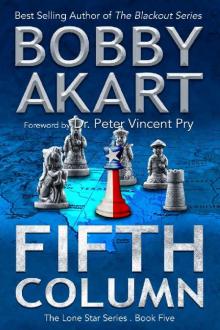 Fifth Column: Post Apocalyptic EMP Survival Fiction (The Lone Star Series Book 5)
Fifth Column: Post Apocalyptic EMP Survival Fiction (The Lone Star Series Book 5)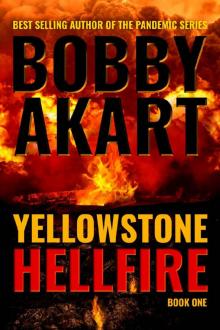 Yellowstone: Hellfire: A Post-Apocalyptic Survival Thriller (The Yellowstone Series Book 1)
Yellowstone: Hellfire: A Post-Apocalyptic Survival Thriller (The Yellowstone Series Book 1)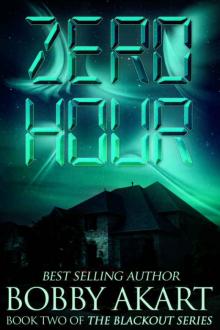 The Blackout Series (Book 2): Zero Hour
The Blackout Series (Book 2): Zero Hour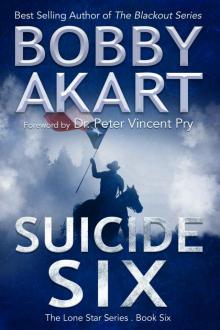 Suicide Six: Post Apocalyptic EMP Survival Fiction (The Lone Star Series Book 6)
Suicide Six: Post Apocalyptic EMP Survival Fiction (The Lone Star Series Book 6)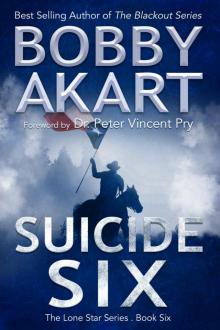 Suicide Six_Post Apocalyptic EMP Survival Fiction
Suicide Six_Post Apocalyptic EMP Survival Fiction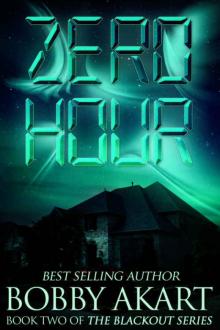 Zero Hour: A Post-Apocalyptic EMP Survival Fiction Series (The Blackout Series Book 2)
Zero Hour: A Post-Apocalyptic EMP Survival Fiction Series (The Blackout Series Book 2)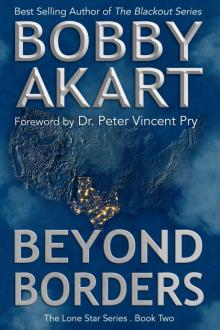 Beyond Borders_Post Apocalyptic EMP Survival Fiction
Beyond Borders_Post Apocalyptic EMP Survival Fiction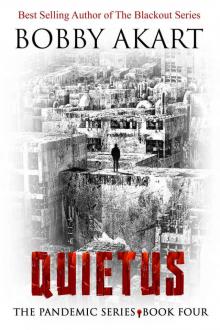 Pandemic: Quietus: A Post-Apocalyptic Dystopian Fiction Series (The Pandemic Series Book 4)
Pandemic: Quietus: A Post-Apocalyptic Dystopian Fiction Series (The Pandemic Series Book 4)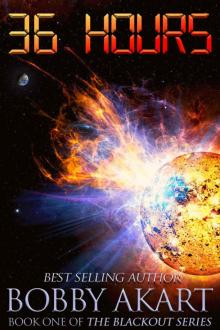 36 Hours: A Post-Apocalyptic EMP Survival Fiction Series
36 Hours: A Post-Apocalyptic EMP Survival Fiction Series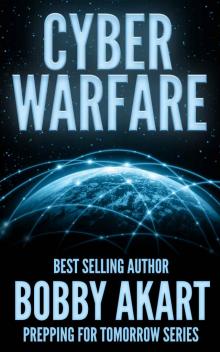 Cyber Warfare
Cyber Warfare